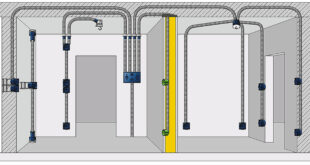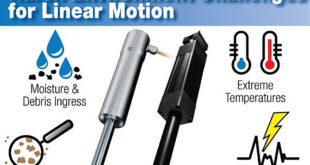With real-time data access, remote diagnostics and simplified configuration, a new commissioning tool helps system integrators and engineers reduce on-site time, speed up project delivery and ensure a smooth handover to operations, says Tim Ricketts
Imagine a world where you can monitor and control your process plant from anywhere, ensuring smooth operations and timely interventions. The AGAD Cloud Portal from Listo makes this possible, revolutionising how system integrators, PLC/SCADA programmers, and field technicians approach commissioning and remote support.
The Agad Portal has been designed and built in-house, from the ground up to collect data from multiple sources on an industrial site, therefore combining all data into one hub. Data can also be viewed from multiple sites at the same time, giving overviews of plant status, alarms and events easily. The key goal is to collect all site-wide data, automatic or manually, and from other Cloud providers, presenting this data in a single product viewable from anywhere.
Unlike many platforms, AGAD Portal does not rely on third-party infrastructure such as AWS, Google or Azure. It’s a fully self-contained IIoT/Unified NameSpace (UNS) solution that is built for long term reliability. The software is engineered for industry – not a re-packaged or repurposed IT product – and is designed from the ground up by experienced Operational Technology engineers. The platform is also user-centric with no hidden costs. Built-in multi-tenant access, role-based controls and no per-user fees ensures secure, scalable collaboration without unnecessary costs.
Smarter, faster commissioning
The new AGAD Commissioning Tool (ACT) module is a short-term deployment of the AGAD Cloud Portal that fits the workflow, timelines and requirements of the end customer. Purpose-built, the software is designed to assist system integrators during the setup and validation of new or modified industrial automation systems, including PLCs, HMIs, and SCADA systems. It provides a structured environment to capture, monitor and validate every data point (digital and analogue) in real-time. All I/O tags can be audited for signal status, range and consistency. Document commissioning results in a repeatable exportable format for client handover and ensures that every control loop, alarm point and operator interface is fully tested before ‘go-live’.
Improved visibility and traceability of commissioning tasks
ACT offers real-time dashboards and audit logs that capture commissioning outcomes for each data point, including: signal present/not present; expected value versus actual reading; scaling validation for analogue inputs/outputs; timestamps of each verified point with the engineer’s name; engineers can journal comments or issue flags for each check, which allows system integrators to generate structured commissioning reports, proving that all control and monitoring systems have been fully tested, helping with regulatory compliance and client QA documentation.
Easy deployment and integration
ACT is designed to be non-intrusive and easy to deploy alongside existing systems. It connects via the AGAD Gateway Server (AGS) at the edge using industry-standard protocols such as Siemens S7, Modbus, OPC-UA, Ethernet/IP, in addition connectivity to existing OPC UA servers such as Kepware or Matrikon. It does not require reprogramming of PLC logic – instead, it reads live values for validation and audit via the AGS. It’s also compatible with all major PLC, HMI and SCADA environments, enabling parallel validation alongside existing FAT/SAT procedures. This reduces commissioning time while increasing confidence in system readiness.
Detect configuration and wiring errors
One of ACT’s core strengths is its ability to highlight mismatches between expected and actual values. This includes detecting out-of-range analogue signals, mis-scaled values, or signal dropout. It also identifies intermittent digital faults that may be missed during manual testing, as well as allow engineers to log and annotate failures or unknowns in the live commissioning interface. This supports early error detection and reduces post-commissioning troubleshooting.
Deliverables and benefits
ACT enables system integrators to deliver a complete, professional commissioning pack that includes:
- A full audit trail of every tag and signal tested
- Confirmation of system readiness with pass/fail logs
- Engineer annotations, test notes and comments
- Exportable reports in PDF or Excel format for client records
The benefits include:
- Reduced project risk and cost from rework or incomplete commissioning
- Faster handover with structured evidence of testing
- Improved trust and credibility with the end client
Tim Ricketts is Business Development Manager at Listo Ltd.
 Engineer News Network The ultimate online news and information resource for today’s engineer
Engineer News Network The ultimate online news and information resource for today’s engineer




